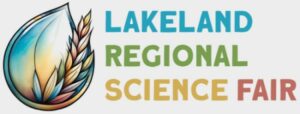Good STEM is safe and ethical!
Your safety is important. When working on your idea, it is important to always put safety first. It is your responsibility to take steps to keep yourself and others safe. Ethics deal with social agreements on right and wrong. In the STEM community, there are rules on how to work in an ethical, or right, way. In general, your project should never cause harm people or animals. It is your responsibility to make sure you are doing ethical STEM when working on your idea.
Letter-of-Information-Informed-Consent
Form – Request for Advice or Ruling from Ethics and Safety Committee
Safety Questions
Ask yourself:
- Have I been trained to do this?
- Do I have permission?
- Do I have adult supervision?
- Is there a safer way to do this?
- Do I have the required safety materials and clothing?
- Am I putting myself or others in danger? (Including animals and the environment.)
- What is my safety plan if something goes wrong?
Ethics Questions
Ask yourself:
- Does my idea involve testing people or animals? (Includes animal tissue, blood, etc.)
- Could my idea cause harm to people or animals?
- Before starting, have I read the Ethics in STEM document and made a plan to make sure my idea is ethical?
- Do I have an adult supervisor to support me in my work?
- Do I have consent from the people participating (or their parents, if they are under 18)?
- Is there a more ethical way to do this?
Safety & Ethics Resources
Safety
- Safety in STEM Projects – more information about safety for different STEM projects
- Youth Science Canada Safety policies
Ethics
Ethics in STEM Projects
– more information about doing ethical STEM when working with humans or animals
- Youth Science Canada Ethics policies
Request for Advice or Ruling Ethics Committee form – to get approval for your project from your teacher and/or regional science fair
- Working with humans
- Working with animals:
